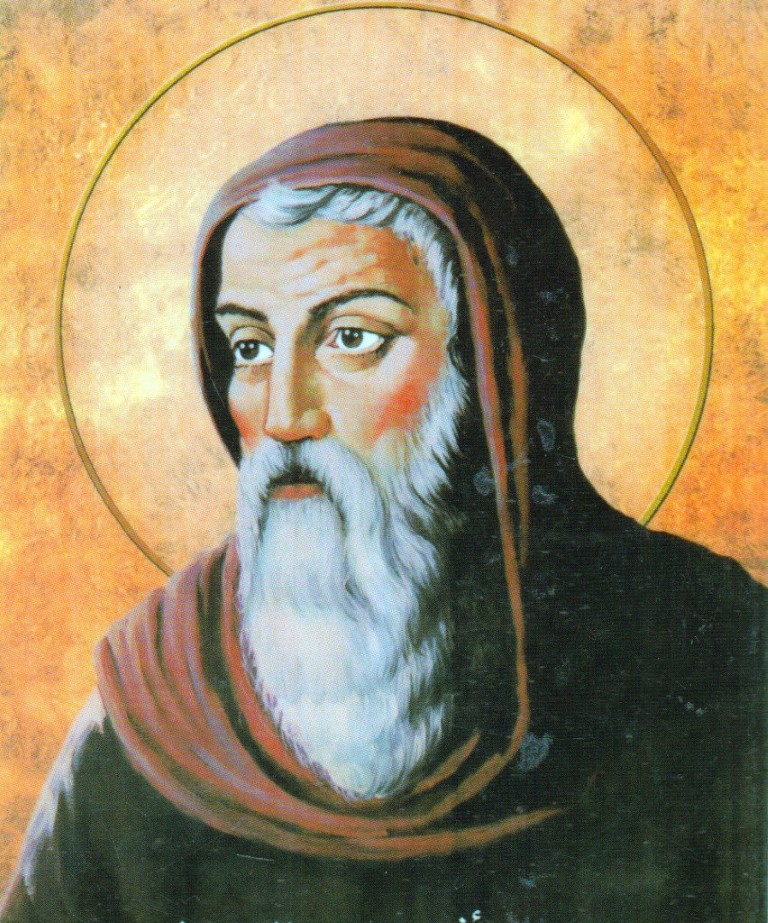– Anastasios
In the 4th century all Christianity was shattered by an heretical doctrine, Arianism. This doctrine, among other things, taught that Jesus Christ was not the Son of God but only God’s most excellent creature. But there were lonely men of God resisting, as Athanasius of Alexandria (296-373). In 325 he was deacon at the Council of Nicaea, the Council that will condemn Arianism. But Arianism did not end in 325. Athanasius will be Bishop of Alexandria in 328 and also in that position he will undergo strong persecution from the supporters of Arianism, that were a lot. He will be dethroned and restored in his position for many times and will be exiled for almost 17 years.
In his works we find three kind of topics: Arianism, defense of the Incarnation and the Trinity and comments on Holy Scripture. We have found this comment about this great saint: “The humility, modesty, and charity of this great saint; his invincible meekness towards his enemies, who were the most implacable and basest of men, and the heroic fortitude, patience, and zeal by which he triumphed over the persecutions of almost the whole world confederated against him, and of four emperors, Constantine, Constantius, Julian, and Valens, three of whom employed wiles, stratagems, and hypocrisy, and sometimes open force to destroy him; these, I say, and all other eminent virtues, have rendered his name venerable in the church to the latest ages, which he ceases not to instruct and edify by his writings. These and other virtues, Saint Athanasius learned and practiced in the most heroic degree, by studying them devoutly and assiduously in the sacred life, and in the divine heart of Jesus. And in the simplicity of faith he adored the incomprehensible greatness of the Divinity, his infinite wisdom, justice, and sanctity, with the boundless treasures of his love and mercy, in the mystery of his adorable Incarnation. If we have a holy ambition to improve ourselves in this saving knowledge, in this most sublime and truly divine science, which will not only enlighten our understanding, but also reform all the affections of our hearts, and be in us a source of unspeakable peace, joy, love, light, and happiness, we must study in the same school. We must become zealous lovers and adorers of our most amiable Redeemer; we must meditate daily on his admirable life, penetrating into the unfathomed abyss of his love, and his perfect sentiments of humility, meekness, and every virtue in all his actions, and join our homages with those which he paid in his divine heart, and still continues to offer to his Father: we must sacrifice to him our affections in transports of joy and fervor, adoring, praising, loving, and thanking him, and must continually beg his mercy and grace, that we may be replenished with his spirit of humility and every virtue; and, above all, that his love may take absolute possession of our hearts, and of all our faculties and powers. ‘The Son of God,’ says St. Athanasius, ‘took upon him our poverty and miseries, that he might impart to us a share of his riches. His sufferings will render us one day impassible, and his death immortal. His tears will be our joy, his burial our resurrection, and his baptism is our sanctification, according to what he says in his gospel: ‘For them I sanctify myself, that they also may be made holy in fruits.’” (Alban Butler, The Lives of the Fathers, Martyrs and Other Principal Saints).
Saint Athanasius knew that it is not the opinion of the majority that at the end is relevant, but it is the adherence to what is true and good, even if most of the world will be against us. We need to please God, not the world.


 Follow
Follow


